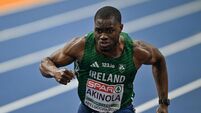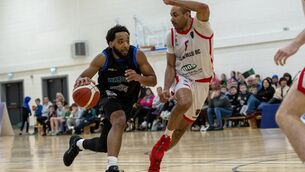Final hurdle
Instead he has chosen the even more volatile world of professional athletics. But after a stellar season in 1999, Coghlan has been plagued with a series of debilitating injuries which have upset progress and prevented him fulfilling the promise which his talent so clearly signposted.
However, the 28-year-old from Castleknock, who last Sunday week won his seventh National title in the 110m Hurdles, reckons his enforced absence from the track in recent months may be the key to him achieving a lifetime best performance at the Athens Olympics, 51 weeks from now.














